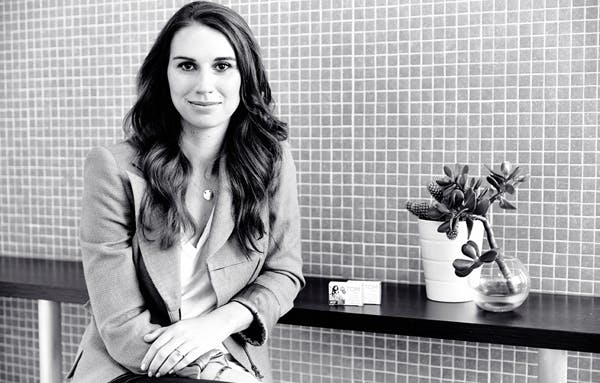The word ‘organic’ may mean different things to different people – but this is no marketing ploy.
For entrepreneur Aimee Marks, her company is the culmination of a steadfast commitment to core, ethical principles.
TOM Organic began when Marks was just 18, because she wasn’t able to find tampons made from organic cotton in the supermarket.
“Most tampons are made from a blend of synthetics and cotton; cotton is one of the most heavily pesticide sprayed crops on the planet, using more than 25% of the world’s total insecticides,” Marks said. “As women we often read the ingredients on our skincare and our food, and yet we don’t stop to think about what we’re putting in one of the most sensitive, absorbent parts of our bodies!”
Eight years on, and with a Telstra Young Business Women’s Award (Victoria) under her belt, the business has evolved through sheer determination.
At 18 years, Marks quickly realised she needed to up-skill. She studied entrepreneurship with a business degree for 3 years, and this period doubled as a research and development phase.
Surrounding herself with mentors and a network of support, Marks spent 18 months full time negotiating the product from her bedroom, designing packaging mockups, and slowly launching in health food stores.
The hardest part she says has been communicating why her product is different, and educating the market.
“I think the biggest challenge has been communicating the difference between our product, and the others on the shelf, in a product category that no one wants to talk about. For many it is quite a ‘grudge purchase’,” Marks says.
The cotton is sourced from certified organic farmers mostly in Turkey, but elsewhere as well depending on weather conditions.
As to why Australian cotton isn’t used, the answer is a simple one. Sadly there simply isn’t a supply of locally grown, organic cotton.
Manufactured in Europe, the tampons are then shipped to Melbourne from where they are packaged and distributed in order to localise the business.
When it comes to distribution, and with the knowledge that over 80% of women buy their feminine hygiene products in the major supermarkets, Marks realised early on that’s where her brand needed to be stocked in order to create impact.
“I actually approached the major retailers as a first stop before I launched in health food stores. It was clear that we really needed to build the brand outside of that first, because they weren’t ready for it, and we really needed to have a different understanding of how to communicate our product, and our difference. That was key for us, because it is at a premium price point,” Marks says.
“Then we went back three or four times to the big guys, and finally got in. We made the arrangement with Woolworths nearly two years ago now, and we’ve been in Coles about six months,” Marks tells DB.
Officially launched 3 years ago in 2010, with no staff, and just her Mother for support, this bedroom start-up now comprises six full-time staff, and is going full steam ahead.
“We’re building a really strong community of women around this lifestyle. So we don’t necessarily always talk about tampons and pads, but we’ll talk about ways to purchase consciously, and think about the purchases you’re making in your life,” Marks says.
Having found a home in the online wellness community, TOM Organic is becoming a stalwart in the feminine hygiene market. Marks aspires to build their market share from its current 2%, to 5%. While the business has firm plans for growth, it is not to be achieved at the expense of its founding values.
“I think businesses are now beginning to recognise they can be a force for positive change in the world, and in terms of some of the other businesses we work with as well, I really see a shared end-goal of competing to be the best for the world, not the best in the world,” Marks says.
“My advice is to build a story, not a brand or ‘business’, and attach meaning to everything you do. You’ve got to get out of bed everyday for something you believe in, and that you’re happy to talk about on the good days, and the bad.”

